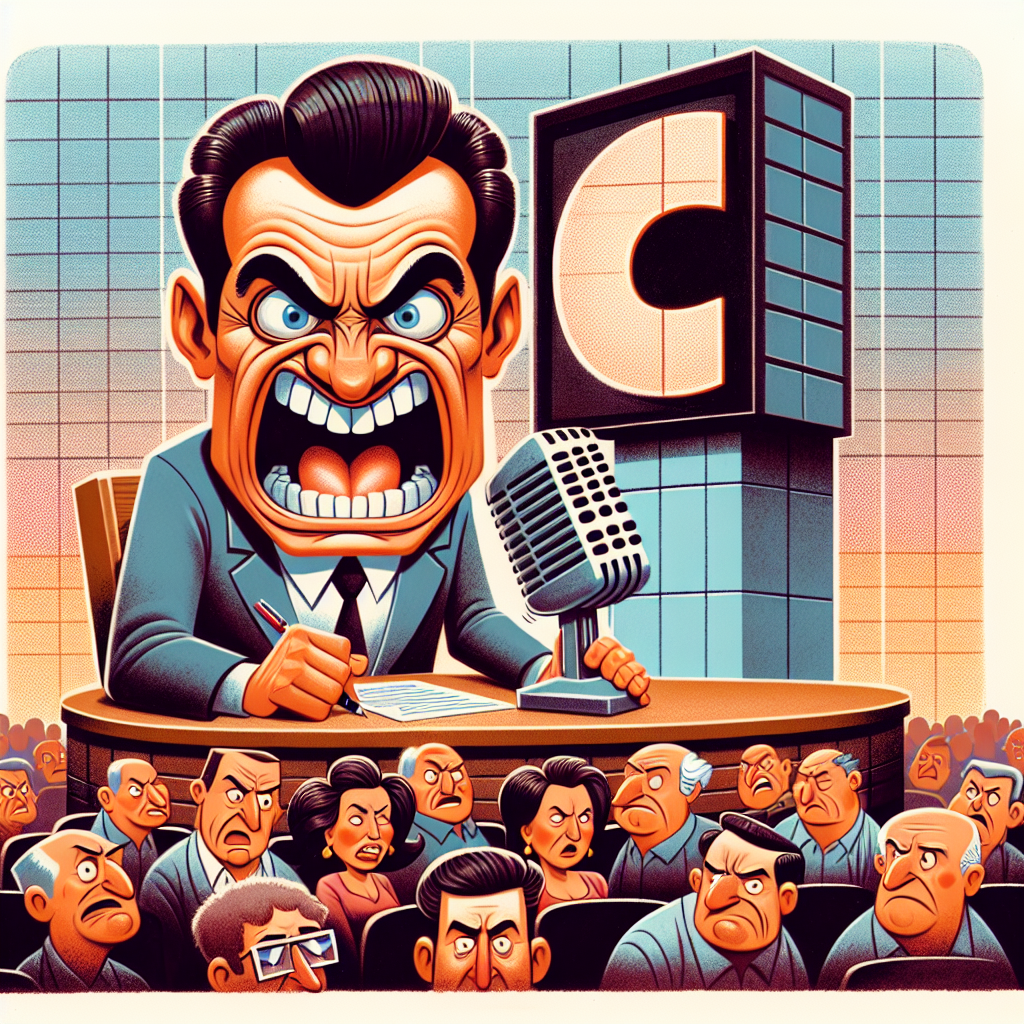Bill Simmons Reacts to Jimmy Kimmel Suspension: ‘Censorship’ – But Is It Really?

OH. MY. GOODNESS. WHERE DO I EVEN START WITH THIS ABSURDITY? Apparently, Bill Simmons has voiced his outrage over Jimmy Kimmel’s suspension, branding it a blatant case of “CENSORSHIP.” And honestly, watching this drama unfold, I’m left rolling my eyes harder than I have in a long time. Because let’s get real: is suspending a TV host for questionable content really censorship, or is it just a company drawing a line in the sand?
First, let’s remember who we’re talking about. Jimmy Kimmel, a late-night talk show host who’s spent years pushing the envelope with jokes that sometimes land — and sometimes don’t. Now, when the powers that be put the hammer down and suspend him, it’s apparently the end of free speech as we know it. Bill Simmons calls it censorship. But that’s oversimplifying a much more complex picture — and frankly, it’s irresponsible to throw around such a loaded word without considering the context.
Here’s what everyone seems to be missing: The reality of public platforms and corporate responsibility. Media companies have shareholders, advertisers, and most importantly, audiences with diverse values and sensitivities. They do not exist in a vacuum where any utterance, no matter how offensive or inappropriate, should just be shrugged off in the name of "free speech."
When a host crosses a line, the company has EVERY RIGHT — scratch that, the DUTY — to respond to backlash and reassess the boundaries of what’s acceptable on their platform. This doesn’t mean they’re authoritarian killjoys or oppressors. It means they’re trying to strike a balance between humor, taste, and social responsibility. And honestly, if you think that being held accountable for your words is censorship, then you need to stop confusing consequences with oppression.
People like Bill Simmons, with his high-profile status, should understand this nuance better than most. Yes, creative expression is vital. Yes, comedians have long pushed societal boundaries to reflect cultural truths and get laughs. But there’s a difference between pushing boundaries and showing blatant disregard for the impact your words have. And when you persistently stir controversy without self-awareness or accountability, expect pushback. That’s not censorship; that’s the marketplace working as it should.
Let’s also talk about the word “censorship” itself because it’s being thrown around so carelessly it’s losing all meaning. Censorship traditionally refers to a government or authoritative body suppressing speech to control opinion or manipulate people. What we see in this instance is a private company enforcing its own guidelines. If a TV channel fires or suspends an employee for violating policies, that’s simply a matter of internal governance — NOT government censorship.
We have to stop infantilizing audiences and pretending they can’t handle standards of decency or holding public figures accountable. This constant cry of “censorship” does nothing but dilute actual conversations about when and where censorship actually occurs — for example, in authoritarian regimes or oppressive systems that silence dissenting voices for political gain. Equating that with a corporate suspension because someone made poor choices on air is a ridiculous stretch.
Another point to consider is the pattern this sets. If every time a media figure stumbles publicly their bosses are forced to look away while audiences shout “censorship,” where does it end? Should no one be held accountable? Should every offensive joke or ill-conceived comment be immune? Absurdly, people like Simmons seem to think so. But that attitude fosters a toxic environment where “anything goes” becomes an excuse for irresponsibility and harm.
And let’s face it: The public is not a monolith. While some fans may scream foul over the suspension, many others are quietly relieved that networks are taking responsibility and sending a message that words have consequences. Surely, there must be some space for that in a healthy dialogue about media and culture? Sadly, some commentators would rather stoke outrage over “free speech attacks” than engage with this reality.
At the end of the day, this isn’t about muzzling voices or silencing dissent; it’s about accountability, professionalism, and respect. Comedy and media should provoke thought and entertain, yes. But they should not thrive on tastelessness, repeat offenses, or neglecting the impact on vulnerable communities. If a respected figure like Kimmel missteps and is asked to sit it out for a while, that’s not censorship — it’s a chance to reflect and recalibrate.
This whole situation highlights a glaring need in media discourse: Stop throwing around “censorship” as the default reaction to any conflict with corporate rules or public standards. Language matters. If we don’t take ownership of our words and their consequences, how can we expect society to evolve beyond the culture of outrage and entitlement that dominates so much of social media and popular debate?
So yes, Bill Simmons might feel the suspension is a slippery slope and declares it censorship, but it’s far more important to tune out the hyperbole and recognize the simple truth: media companies are making choices based on values, audience expectations, and reputational risk. And that is not only reasonable, it’s essential.
Maybe it’s time for some REAL accountability instead of dramatic declarations. Maybe it’s time for a little humility from people who have platforms — and with that, a little recognition that holding comedians to account isn’t censorship. It’s common sense. And frankly, it’s about time.

